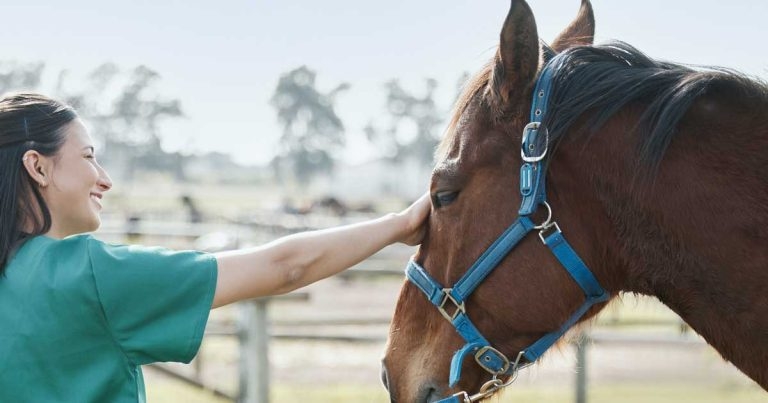20 Sept 2023
Senior officials hope the development of new guidance on the role of nurses in practice can ease workforce pressures and improve welfare.

Image: © peopleimages.com / Adobe Stock
New guidance on the role of veterinary nurses in equine practice can help to address workforce pressures and improve welfare outcomes, senior BEVA officials say.
The message came as the group’s outgoing president, David Rendle, told its annual congress that VNs “can and should” be given the chance to do more than they have been thus far.
The need to attract more nurses to join the association was also highlighted during the gathering in Birmingham, despite increases in its overall membership figures.
A dedicated nurse committee has now been set up within BEVA and Mr Rendle expressed the hope that foundations were now in place for a “quantum leap” in developing the role.
But he also warned delegates that the findings of research published by the CVS Group earlier this year, which indicated that more than a third of nurses who left their roles in 2021 cited career progression as the main factor, were “not OK”.
He added: “It’s very clear to me equine nurses can and should do much more than they are allowed to do in practice.
“In many areas, I genuinely believe nurses are more effective members of the practice team.”
The congress programme also included a panel discussion on the association’s recent guidance interpreting the Schedule 3 amendment of the Veterinary Surgeons Act that extends the types of work which RVNs can undertake.
Under the BEVA guidance, which is supported by both the RCVS and BVNA, equine RVNs can give treatment and carry out minor surgery which does not involve entering a bodily cavity, where the directing vet is satisfied they are suitably trained to do so.
The provision also applies to SVNs who are working under the supervision of a vet or registered nurse.
The development of the guidance followed a survey that indicated a broad lack of understanding of the procedures was a key factor in nurses leaving the sector.
Chair of BEVA’s nurse committee Marie Rippingale said: “We hope BEVA’s Schedule 3 guidelines will help with the delegation of Schedule 3 procedures to [equine] RVNs, enabling them to have more fulfilling clinical careers, which will contribute positively to retention.
“We also hope the guidelines will help reduce the workload of equine veterinary surgeons, improving their well-being and positively affecting retention. Overall, we hope the use of the guidelines will lead to improved welfare for equine patients.”
The association’s new president, Roger Smith, also indicated the work that had begun in the area during Mr Rendle’s tenure would continue during his term as he identified the empowerment of VNs as one of four main priorities.
He said: “I have been so impressed by the engagement and passion of our equine veterinary nurses during our discussions on the modifications/clarifications of Schedule 3 amendment of the Veterinary Surgeons Act, as well as chairing a review of the RVC’s nursing foundation and degree courses.
“Getting nurses more involved in the care of our patients, similar to the way in which nurses work in the medical profession, could provide part of the solution to the current shortage of qualified equine vets and I am keen to support the ongoing discussions in this respect.”